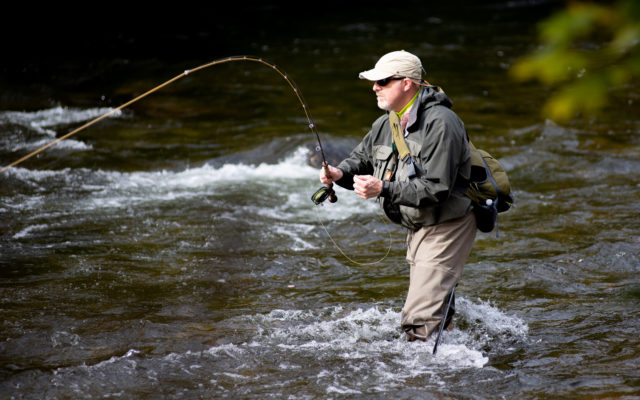
Trout Unlimited’s national meeting won’t be held in Bangor this year
To the constantly growing list of events that won’t be staged this year, add this: Trout Unlimited’s national meeting, which was to have been held in Bangor in August, will instead be staged in the Queen City in 2021.
The meeting had been scheduled for Aug. 19-23 and would have drawn hundreds of volunteers to Bangor for a variety of meetings and recreational events.
Mac McGinley, the chairman of the Maine Council of TU, said last week that his group had reached out to TU’s national board of directors and shared the difficulties involved with planning for an August event during the COVID-19 shutdown.
“The Maine Council did discuss what our options were for the national meeting in Bangor this year, and made a recommendation to TU national that we reschedule it to next year,” McGinley said. “With all of the [things going on], shelter-in-place and all nonessential businesses closed, it’s just too hard to get stuff done that we need to to have a fully functional meeting this summer.”
On April 10, McGinley said the national board had agreed with the Maine Council’s proposal and will stage the meeting in Bangor in 2021, likely in June or July.
Trout Unlimited is a conservation group that has 300,000 members nationally and six chapters here in Maine. The organization stresses the importance of coldwater fisheries and works to conserve them. Their motto is “Take care of the fish and the fishing will take care of itself.”
The 2019 annual meeting was held in Rogers, Arkansas. Maine previously hosted the event in the early 2000s. That meeting was held in Portland.
When the site of this year’s meeting was revealed in December, Jeff Reardon, the Maine Brook Trout Project director for TU, said he was excited to welcome national TU members back to the Pine Tree State.
“This is a big deal for us in Maine,” Reardon said.
Among the stops planned for the meeting’s conservation tour would be former dam sites along the Penobscot River, which were removed as part of the Penobscot River Restoration Project, TU was a partner on that project, which removed two dams and created a fish bypass on another in order to provide traditional fish passage that the dams had blocked.